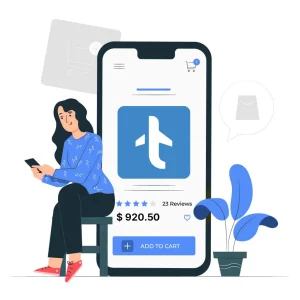Let’s get one thing straight: social media marketing for travel businesses isn’t just about posting pretty pictures of Santorini sunsets and waiting for the bookings to roll in.
If that worked, every Instagram account with a drone would be a multi-million-dollar enterprise.
The truth is, travel is an emotional purchase → driven by desire, aspiration, and sometimes, sheer envy.

People don’t just book trips; they book transformations.
Your job???
To engineer those transformations through clever positioning, psychology, and, yes, the right platforms.
So, let’s cut through the fluff. Here’s how to use social media to not just ‘be present’ but actually generate demand.
1. Pick Your Social Battlegrounds Wisely
Most businesses make the mistake of trying to be everywhere at once.

The result?
A diluted, ineffective presence. The trick is to focus on the platform where you can create the most impact.
You have two options:
Option 1: Play to Your Strengths
Are you a natural storyteller? Facebook groups and LinkedIn articles could be your goldmine.
Do you love crafting visually stunning experiences? Instagram, TikTok, and Pinterest are your playgrounds.
Option 2: Follow the Money
Where do your ideal customers hang out? A luxury travel business targeting executives has no business wasting time on TikTok. A Gen Z adventure tour company shouldn’t be spending hours on LinkedIn. Match your content to your audience’s digital habitat.
Here’s a quick cheat sheet:
| Platform | Best for | Audience | What Works |
|---|---|---|---|
| Experiential travel, influencers, visual storytelling | 18-34, aspirational travelers | Stunning imagery, reels, interactive stories | |
| TikTok | Viral moments, quirky travel hacks, behind-the-scenes | 16-30, experience-driven travelers | Fast-paced, engaging videos, trends |
| Community building, lead generation, group engagement | 25-55, decision-makers | Groups, targeted ads, testimonials | |
| Business travel, industry credibility, thought leadership | 30-60, professionals | Industry insights, networking, case studies | |
| Dream trip planning, SEO-driven leads | 25-45, visual planners | Pinboards, itineraries, lead magnets | |
| YouTube | Long-form storytelling, destination marketing | All age groups | Vlogs, guides, immersive experiences |
2. The ‘Invisible Forces’ That Drive Travel Bookings
Understanding why people book travel is far more important than just showcasing destinations.
The best social media marketers don’t sell trips—they sell status, escape, and self-actualization.
Consider these psychological triggers:
- Social Proof – If everyone’s going to Bali, it must be amazing. Use testimonials, user-generated content, and influencer partnerships.
- Scarcity & Urgency – “Only 3 spots left for this exclusive Maldives retreat.” Fear of missing out is a powerful motivator.
- Authority & Trust – Expert-backed itineraries, media features, and trust signals make people feel confident in booking with you.
- Framing & Anchoring – Position your mid-tier packages as ‘premium-lite’ to make them feel like a steal compared to your high-end offerings.
3. What to Post (Hint: Not Just Pretty Pictures)
There are three categories of content that turn browsers into bookers:
Awareness: Make Them Dream
- Use emotionally charged storytelling. “Meet Sarah. She ditched her soul-crushing job for 10 days in Patagonia. Here’s what happened…”
- Show experiences through the traveler’s eyes, not just generic stock photos.
- Data-backed insights: “Did you know that 72% of people say a trip makes them happier than buying a new car?”
Engagement: Get Them Talking
- Run polls and quizzes: “What’s your ultimate bucket list destination?”
- Ask engaging questions: “If you could teleport anywhere for a weekend getaway, where would it be?”
- Create shareable content: humorous memes, travel hacks, behind-the-scenes stories.
Action: Get Them to Book
- Limited-time deals: “Book before midnight for 20% off your next adventure.”
- Lead magnets: “Grab our free ‘Ultimate Travel Packing Guide’ when you sign up for our newsletter.”
- Retargeting: Use paid ads to bring back people who interacted with your content but didn’t convert.
4. The Two-Minute Rule for Content
People scroll. They don’t sit down with a cup of tea to analyze your post like it’s a Shakespearean sonnet.
- Videos: If you don’t hook them in the first 5 seconds, you’ve lost them. Keep it under 90 seconds.
- Text Posts: A crisp headline, one key idea, and a call to action. Anything longer belongs in a blog.
- Stories: The perfect place for behind-the-scenes, quick tips, and daily engagement.
5. The ‘Lego Block’ Approach to Content
Creating content from scratch every time is madness. Instead, break big ideas into smaller pieces:
- Turn a long-form blog into 10 social media posts.
- Chop up a video into bite-sized reels.
- Repurpose a tweet into an Instagram post.
- Take a customer testimonial and turn it into a story, a quote graphic, and a case study.
This way, one piece of content works 5x harder.
6. Paid Ads: The Ultimate Growth Accelerator
Organic reach is great, but it’s slow. If you’re serious about growth, invest in ads.
The key?
- Target the right audience (not just ‘travel lovers’ but ‘luxury travelers who have been to Bali before’).
- Optimize for conversions, not just clicks.
- Retarget people who engaged but didn’t book.
- Test different creatives, copy, and offers.
The Final Word: Stop Selling, Start Inspiring
Nobody wakes up thinking, “I need to buy a travel package today.” They book when something shifts in their emotions → when they see a post that reminds them how much they need a break, how much they crave adventure, or how much they want to impress their friends.
Your job isn’t to ‘sell trips.’ It’s to make them feel like they’d be insane not to take one.
Use social media accordingly.

